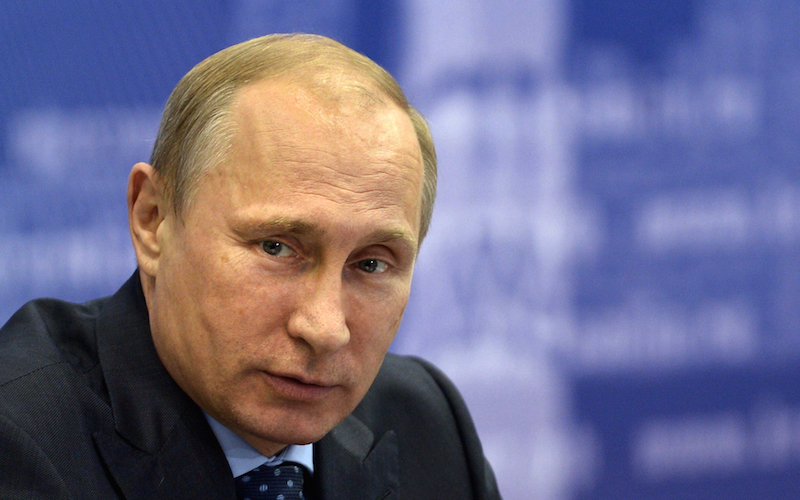
Why the Trump Administration Should be Tough on Russia
Since the end of the Cold War, US-Russia relations have been deteriorating and nobody seems to know how to best deal with Vladimir Putin. Many fear that with Trump’s Putin-praising rhetoric, the United States will not be able to advance its interests abroad, but instead sacrifice friends and allies due to the lack of foreign policy experience of the president-elect.
By simply treating Russia as a business partner, Donald Trump, the “transactional” president-elect, will not succeed at deterring Russia’s aggression in Europe, its bombing of Syrian rebels, or its blatant hacking of U.S. state election systems. In order to continue to exert power and protect our national interests, the incoming administration needs to develop a hardline comprehensive strategy in dealing with Russia.
The Trump Administration needs to show continued commitment to its European allies and should send lethal military aid to Ukraine, so it can defend its territory and deter further incursions by the Russian military in Donbas. Furthermore, economic sanctions against Russia should remain in place until Russia fulfills the 2015 Minsk II peace agreement. This will allow Ukraine to regain control over its border and send a message of U.S. commitment to security in Europe.
In order to reassure our NATO allies of our continued support, the United States should host a NATO Summit in early 2017. It is in our interest to maintain peace and security in Europe. Not only have European countries been our allies for decades; they have fought on our side in Bosnia, Afghanistan, Iraq and Libya, to name a few. In order to ensure a more balanced burden sharing within the NATO alliance, the U.S. needs to stipulate that all NATO members increase their defense spending at least to the benchmark of 2% of GDP. This step will solidify U.S. policy in Europe and signal to Russia that the transatlantic community is united in collective defense of its allies.
U.S. foreign policy also needs to be definitive when it comes to the Middle East. As Russia steps up its bombing campaign of Syrian rebel-held areas, the U.S. cannot stay on the sidelines. The new administration needs to strive for a ceasefire and push for a political solution in Syria.
Specifically, it should initiate dialogues with all actors on decentralization and empowering local governments in Syria. While it may be impossible to negotiate a regime change with the central government, we can broker a peace deal and halt further fighting and destruction.
Many supporters of Trump advocate a softer stance on Russia. They want Putin to have his way in Ukraine, Baltic countries and Syria. But this is a dangerous path that will lead to more conflict. America cannot afford isolationism. Putin’s government has already showed its disregard for international law and national sovereignty by annexing Crimea and invading Ukraine. Frequent Russian fighter jets’ incursion into NATO airspace is a signal that Russia is prepared to defend its interests with force. Russia’s recent withdrawal from the International Criminal Court shows its disdain for Western values.
Most recently, Russia’s reported plans to deploy the S-400 air defense missile system and Iskander system to Kaliningrad, the Russian exclave in the Baltics, should be a clear sign to U.S. policy makers that Russia needs to be contained.
As everyone knows, Trump is an unpredictable figure, but he can use that to his advantage in dealing with Putin, who can also be unpredictable. However, U.S. policymakers cannot rely on surprise alone; we need a clear hardline policy in dealing with Russia. The U.S. needs to stand up to Putin, who treats politics as a game of chess. The President-elect should be just as strategic in his next move. As a country, we should continue our commitment to our European allies by supporting NATO, we should provide Ukraine with lethal military aid to defend against Russian aggression, and we should step up our role in Syria by initiating talks with Russia and the Assad regime to negotiate a peace settlement. During this time of uncertainty America needs to be the leader that the world can rely on.

